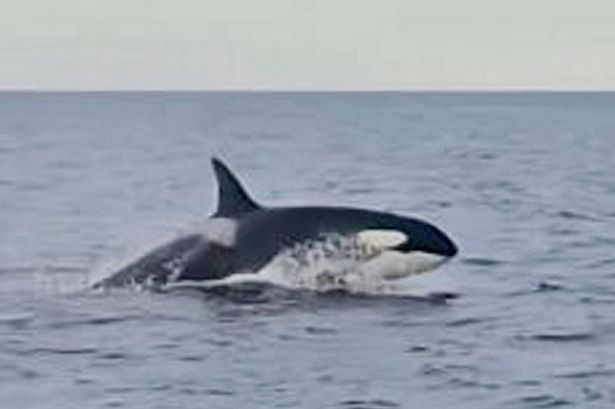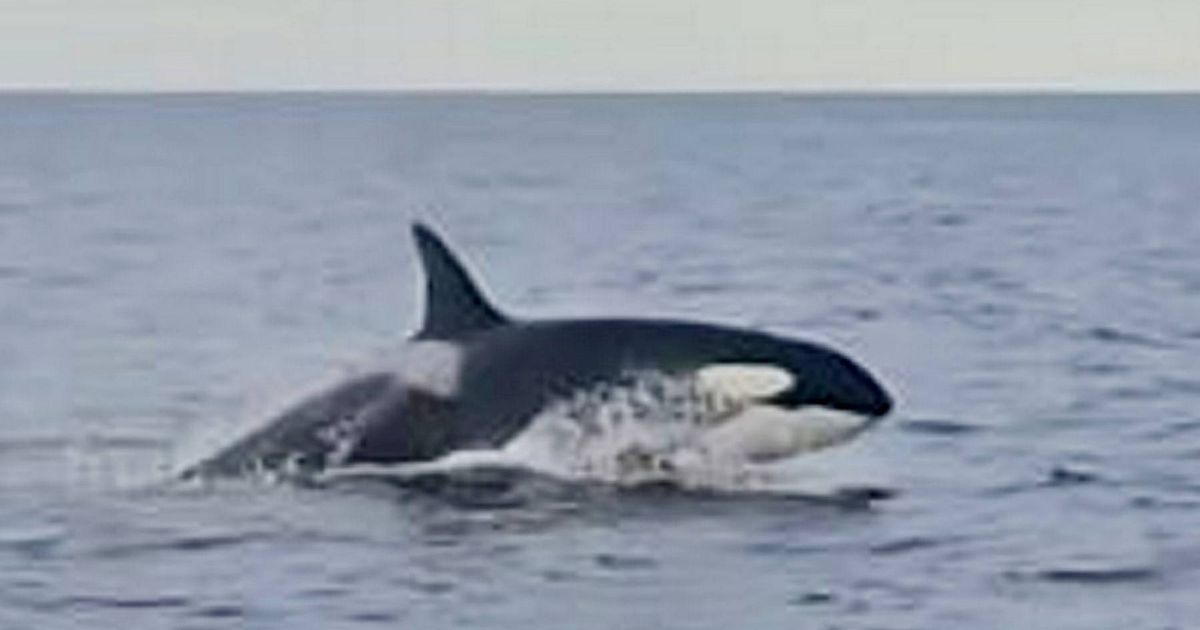Experts say people should be aware
13:29, 23 Jul 2025Updated 13:33, 23 Jul 2025
 A sailor encountered a pod of eight killer whales off the coast of Northumberland in June(Image: Andrew Douglas / SWNS)
A sailor encountered a pod of eight killer whales off the coast of Northumberland in June(Image: Andrew Douglas / SWNS)
British sailors are being warned about the risk of being rammed by killer whales after orcas attacked a yacht in Spain this week.
If killer whales are encountered off the coast of Britain, skippers are advised to switch of their engines. Two sailors sent out a mayday distress call on Monday after their vessel, called Azurea, was attacked by orcas off the coast of Spain.
The French yacht was rammed at approximately 2pm local time, two nautical miles from the town of Deba.
Rescuers who saved the pair said such incidents were “uncommon” so high up in the Atlantic. However, an expert at a British university did not rule out that similar incidents could occur in the future.
Professor Volker Deecke, an academic at University of Cumbria in the conservation of marine mammals and behavioural aspects of conservation biology, said: “UK sailors transiting the hotspots should definitely familiarise themselves with the guidance. The same guidance applies for sailors encountering any killer whales in Cornish waters.”
Speaking to the Daily Telegraph the academic explained the guidance given to sailors in the Strait of Gibraltar includes to stop the boat engine and lower the sails immediately if orcas are spotted, turn off autopilot and echo sounders and not to make loud noises in an effort to scare the creatures away.
Other advice includes avoiding hotspots in the first place and, most crucially, to stay in shallow waters of about 20 meters in depth.
Wildlife experts confirmed earlier this month the first sighting of Iberian orcas in Cornish waters. This again has led to advice to British sailors to take care in waters around the South West of England in particular, reports The Mirror.
It is thought that incidents such as Monday’s have been averted off the coast of Spain thanks to efforts by authorities to remind sailors of the safety protocol.
Dr Javier Almunia, director of the Loro Parque Foundation, told The Telegraph: “The behaviour has reduced, at least in the Gibraltar Strait, by around 90 per cent following the recommendations of the Spanish authorities.”
However, killer whales are known to approach vessels from the stern and hit the rudder before losing interest once they have stopped the boat in a phenomenon that scientists have struggled to fully explain.
Some marine biologists believe that the whales may be attacking out of boredom.
Prof Deecke, whose Master’s degree at a Canadian university was about killer whales, added: “During interactions, the animals remain cool, calm and collected without any of the behavioural signs of aggression such as splashing or vocalisations.”

